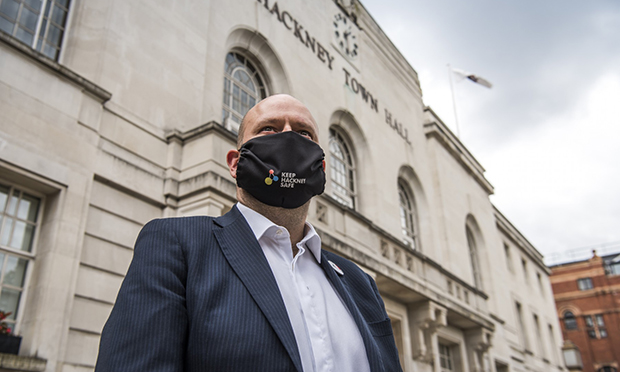‘On autopilot without a map’: Hackney Mayor condemns government decision to end free Covid testing

Hackney’s mayor has slammed the government’s decision to scrap free Covid tests – saying it’s like putting the virus “on autopilot without a map”.
Prime Minister Boris Johnson announced that free testing will end on 1 April unless people are in vulnerable groups or do specific jobs.
The bill for free testing was £2bn for January alone.
People will no longer legally have to self-isolate from Thursday, but will be advised to stay at home for five days if they have symptoms.
Hackney Mayor Philip Glanville said the move to end free testing “is wrong and unsupported by the science or medical professionals”.
Cases in Hackney are still “exceptionally high”, he said, and the virus can leave people with long-term complications.
There were 1,172 cases locally in the week to 16 February, with 41 patients at Homerton Hospital, including one on a ventilator.
Glanville said: “We can’t simply wish this disease away, as much as we’d like to.
“In Hackney, our priority will remain – as it has throughout the pandemic – on keeping our residents and staff safe, and that won’t change because of this announcement.”
He said he was “deeply concerned about the timing and data” behind the announcement.
Hackney has a low vaccination rate, with 45 per cent of residents boosted and 60 per cent double-jabbed.
Nationally, 66 per cent of people have had their booster, with 85 per cent vaccinated twice.
Vaccine centres across the borough are open to give people their first, second and booster injections.
Glanville said Covid “remains a particularly risky infection for people who are unvaccinated”.
He said removing the free tests will affect people who cannot afford to pay for them, and those who work in insecure jobs and might feel pressured not to self-isolate voluntarily.
He added: “We’ve built an excellent system of testing that allows us to track the disease, ensure those infected stay at home and protect those that are vulnerable.
“It also gives us crucial data to analyse and respond to new variants of this unpredictable coronavirus.”
